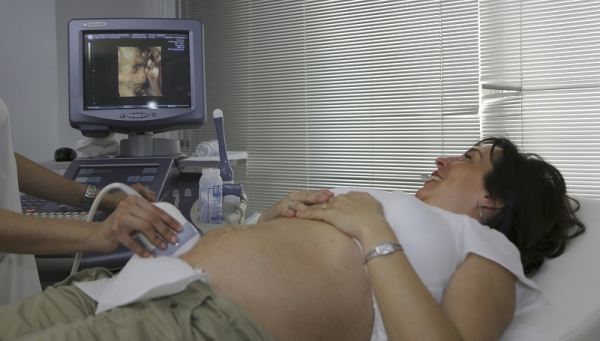The success rate of vaginal deliveries in women who had undergone a previous C- section may have declined during the first months of the Covid-19 pandemic. This is, at least, one of the conclusions reached by a new observational study carried out by a research team at the University of Cordoba and the Maimonides Institute of Biomedical Research, whose objective was to determine the factors associated with successful vaginal delivery after a preceding obstetric interventionviacesarean section.
According to the study's data, in the period from March 2019 to February 2020, prior to the pandemic, the success of this type of natural childbirth in women with a prior C-section was significantly higher than in the period between March and December of the same year, precisely during the first two waves of Covid-19.
This isolated decline is probably attributable to various and complex reasons, say two of the researchers responsible for the study, Pedro Hidalgo and Pablo Jesús López, with the 'Comprehensive Nursing Care: A Multidisciplinary Perspective' research group. During this period, the coronavirus exploded In Spain, wreaking havoc, and the massive contagion of a pathogen that was poorly understood may have affected hospitals and their management, much more focused on stopping the pandemic. Moreover, as shown by several scientific publications, the overall number of cesarean sections increased during this period compared to previous years.
Despite this difference observed during this period, the research team responsible for the study points out that the data should be viewed with some caution. Firstly, as Professor Hidalgo points out, the average success rate of vaginal births, after a previouscesarean, continues to be "good," at around 67%, a figure "very similar to the rest of the countries in our area of the world." In addition, it should be pointed out that the study, in which data was collected from 276 mothers, focused on a single Andalusian province. Furthermore, according to the researcher Pablo Jesús López, the study is a first approach within a line of research that is still underway; and, as the latest data seem to indicate, this difference has become less pronounced as the pandemic has evolved, proof that the hospitals have been adapting to the changing circumstances.
An aid to decision making
"The fact that a woman has had a precedingcesarean delivery could influence future pregnancies," explains Hidalgo. For this reason, the research team has undertaken this line of research with the aim of helping healthcare personnel make decisions in this type of situation. "Although it is the mother who decides, as long as there are no risk factors in her medical history, vaginal delivery is ideal, even if there has been a previous cesarean section," emphasizes Pablo Jesús López. In fact, the World Health Organization recommends that the ratio of these obstetric interventions be between 10% to 15%, when in Spain this figure reaches an average of 26%, including both public and private hospitals.
Meanwhile, the research group will continue to analyze all the elements involved in this process, such as, for example, gestational age, the use of oxytocin, andepidural anesthesia, andwhether the patient has previously given birth vaginally, a factor that favors the success of future natural childbirths.
References
Pedro Hidalgo, Pablo Jesús López, A.M. Cubero-Luna, J. Huertas-Marín, M. Hidalgo-Maestre, A.J.de la Torre-González, M.A. Rodríguez-Borrego, P.J. López-Soto. Vaginal birth after caesarean section before and during COVID-19 pandemic. Factors associated with successful vaginal birth. Women Birth. 2021 Dec24;S1871-5192(21)00201-8. doi: 10.1016/j.wombi.2021.12.008.


